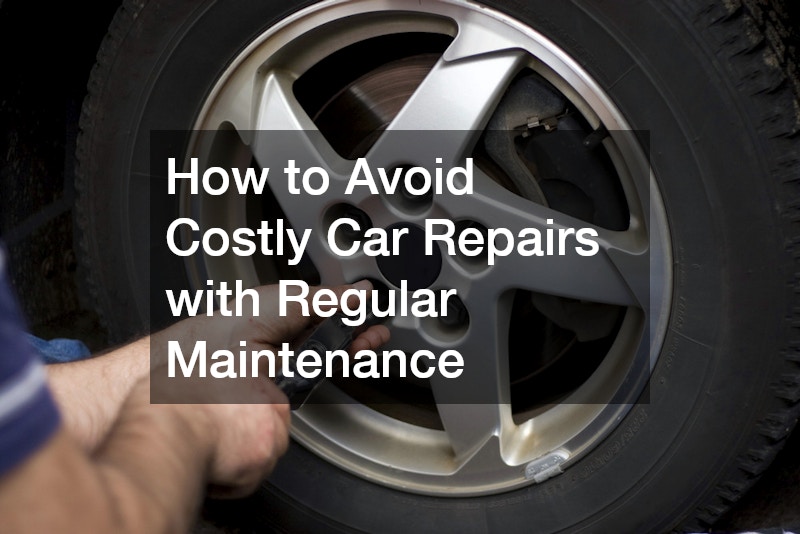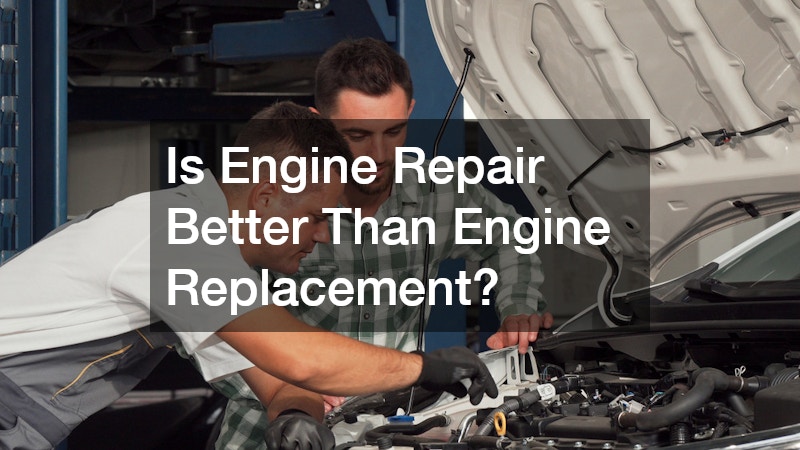In this article, we’ll explore the importance of regular vehicle maintenance and how it can prevent expensive repair costs. Regular maintenance is crucial for ensuring the longevity and optimal performance of your car. By investing time and resources into routine checks, you can extend your vehicle’s lifespan and enhance its safety and reliability on the road. Additionally, keeping up with regular maintenance reduces the likelihood of unexpected breakdowns, which can lead to costly fixes.
The importance of maintenance cannot be overstated; it’s an essential aspect of vehicle ownership that requires attention and adherence to schedules. Proper maintenance contributes to a car that operates efficiently, using less fuel and lowering the chances of environmental harm. Not only does this practice improve the car’s performance, but it also safeguards against incidents that could necessitate the use of a tow truck or car accident law firm services.
Investing in regular maintenance is akin to buying peace of mind, ensuring that you’re protected against drastic failures that sometimes result from negligence. In the sections that follow, we will delve into the critical components of car care, helping you to avoid unforeseen repair expenses. We will discuss the significance of different maintenance tasks and how they contribute to a safer, more economical driving experience.
Why is Regular Maintenance Important for Cars?

Regular car maintenance is essential because it involves systematic checks and routine servicing that help identify potential problems early on. By addressing these issues promptly, you can prevent them from escalating into more significant problems that necessitate expensive repairs. For instance, neglecting oil changes can lead to engine failure, which might require tow trucks to transport your vehicle to a repair shop.
Additionally, regular maintenance keeps your car running safely, reducing the likelihood of accidents and ensuring compliance with safety standards. When various components such as the brakes, tires, and lights are in proper working order, you’re less prone to mishaps. This practice not only lowers the risk of needing a car accident law firm but also helps maintain the vehicle’s resale value.
Maintenance is also about ensuring efficiency and sustainability. A well-maintained car typically uses less fuel, which is beneficial for both the environment and your wallet. From leveling kits to tire rotations, routine checks are vital for optimizing the car’s operation and prolonging its usable life, further preventing costly repairs and enhancing fuel efficiency.
What are the Essential Car Maintenance Checks?
There are several essential maintenance checks that every car owner should prioritize to ensure their vehicle remains in good condition. Firstly, regular oil changes are crucial for keeping the engine lubricated and functioning optimally. It’s advisable to follow the manufacturer’s guidelines regarding oil change intervals to avoid the buildup of sludge, which can lead to severe engine damage.
Another vital maintenance task is tire inspection, including checking the pressure and tread depth. Properly inflated tires reduce uneven wear, improve fuel efficiency, and ensure the vehicle handles well on different road surfaces. Some car owners opt for leveling kits to maintain even balance, preventing unnecessary wear and prolonging the lifespan of the tires.
Additionally, checking the car’s battery health and electrical system is an integral part of maintenance. Over time, batteries lose their capacity, which can lead to starting issues. Regular inspections can help determine when a battery replacement is needed, mitigating the risk of being stranded on the road and requiring the assistance of a local mechanic or auto repair services.
How Often Should You Service Your Vehicle?
The frequency of car servicing depends on several factors, including the vehicle’s make, model, and usage patterns. Generally, it’s recommended to follow the manufacturer’s maintenance schedule, which is typically found in the owner’s manual. These schedules outline service intervals based on mileage or time, aiming to avoid performance issues that might warrant intervention from a car accident law firm.
For many vehicles, a service every 5,000 to 10,000 miles is advisable, which includes basic checks like oil changes and brake inspections. More comprehensive checks, such as those involving the transmission or suspension, might be necessary every 30,000 to 60,000 miles. Regular servicing by a local mechanic ensures that any developing issues are identified early, preventing later complications.
Beyond manufacturer recommendations, adjustments may be needed based on driving habits and environmental conditions. For instance, cars frequently exposed to harsh weather or rugged terrain might require more timely servicing. This proactive approach improves the tbd and durability of the vehicle, aligning with a prevention-focused maintenance strategy.
Which Car Parts Require Regular Replacement?

There are specific car components that naturally wear over time and require regular replacement to maintain the vehicle’s safety and performance. The brake system is one such component, where parts like brake pads and rotors should be inspected regularly. Inadequate braking power can compromise safety, necessitating intervention from a reliable auto collision shop or brake repair service.
Wipers are another item that requires regular attention, as they deteriorate due to weather exposure. Functional wipers are essential for maintaining visibility in adverse conditions, thereby promoting safety. Similarly, light bulbs for headlights and taillights should be checked periodically, ensuring that the car is visible to others on the road.
Fluid levels, including coolant, transmission, and power steering fluids, also need routine checks and refills. These fluids are vital for the smooth operation of the vehicle’s systems, preventing overheating and wear. By addressing such replacements in consultation with a local mechanic, you enhance the tbd and efficiency of your vehicle.
How Can Regular Maintenance Improve Fuel Efficiency?
Regular maintenance plays a significant role in enhancing a car’s fuel efficiency, which is beneficial for both economic and environmental reasons. A well-maintained engine operates more efficiently, consuming less fuel to deliver the same performance. Simple tasks, such as maintaining proper tire pressure, can considerably affect fuel economy, as under-inflated tires increase resistance and force the engine to work harder.
Regularly replacing air filters is another maintenance task that supports fuel efficiency. Clogged filters restrict airflow, reducing engine efficiency and thus increasing fuel consumption. Clean filters allow the engine to breathe better, optimizing combustion and leading to improved mileage.
Additionally, aligning the wheels and ensuring the suspension system is in good order can significantly contribute to reduced fuel consumption. Misaligned wheels cause uneven tire wear and increase drag, negatively impacting fuel economy. Engaging with a local mechanic for these checks ensures the car uses fuel effectively, enhancing its tbd and performance.
What is the Role of Diagnostics in Preventive Maintenance?
Diagnostics technology has become a crucial element of preventive maintenance, allowing mechanics to identify issues before they lead to more significant problems. Modern vehicles are equipped with onboard diagnostics systems that provide real-time information about the car’s health. These systems can highlight components nearing failure, offering timely warnings that help car owners address potential problems proactively.
Regular diagnostics checks uncover issues that might not be immediately apparent, such as engine misfires or emissions problems. Addressing these early can prevent more severe damage, reducing the need for costly auto repair services. Diagnostics tools, such as scan tools, can quickly assess various vehicle systems, including the engine, transmission, and more, ensuring all components function optimally.
Incorporating diagnostics into a routine maintenance schedule enhances the ability to prevent expensive repairs and prolongs the vehicle’s life. The proactive approach these checks facilitate is crucial in maintaining the tbd of both new and aging vehicles. With advancements in technology, diagnostics has become indispensable for maintaining car performance at peak levels.
How Can Seasonal Changes Affect Car Maintenance?

Seasonal changes can have a significant impact on a vehicle’s maintenance needs, as different weather conditions pose various challenges. During winter, for example, cold temperatures can affect battery performance, requiring regular checks to prevent failures. Ensuring the antifreeze levels are adequate is critical to prevent the engine from freezing, especially in regions with severe winters.
In summer, high temperatures can cause the car to overheat, increasing the importance of checking coolant levels and the condition of the radiator. Moreover, tire pressure can be affected by temperature fluctuations; thus, regular monitoring is necessary to maintain safety and efficiency. Seasonal shifts can also impact the operation of the transmission, highlighting the importance of timely auto transmission repairs if needed.
Seasonal maintenance tasks are crucial for adapting the vehicle to changing conditions, reducing the strain on different systems. Local car washes are also beneficial during these periods, as they remove road salt and debris that can accumulate during seasonal transitions. Addressing these factors ensures that weather-related issues do not compromise the tbd of your vehicle.
What Maintenance Tasks Can You Do Yourself?
While many maintenance tasks should be performed by a professional, there are several checks and upkeep procedures that car owners can handle themselves. Regularly checking the oil level and topping off as needed is a straightforward task that can prevent engine problems. Similarly, inspecting tire pressure and adding air when necessary can be done at home or at a local gas station.
Other simple DIY tasks include replacing wiper blades and air filters, which require minimal tools and expertise. Ensuring these elements are in good condition enhances the car’s functionality and safety. Keeping the exterior clean through regular visits to local car washes can also help preserve the vehicle’s paint and prevent rust. Another way to protect your exterior is to invest in car ceramic coating.
Performing these basic maintenance checks enhances the car’s appearance and performance, contributing to its overall tbd. While it is essential to recognize when to seek professional help, especially for more complex issues, these regular DIY checks can prolong the vehicle’s lifespan and reduce repair costs. Balancing DIY tasks with professional input ensures comprehensive car maintenance.
How to Choose a Reliable Mechanic for Regular Maintenance?
Choosing a reliable mechanic is essential for ensuring that your vehicle receives quality maintenance and repairs. A good starting point is seeking recommendations from friends, family, or online reviews to identify trusted auto repair services. Evaluating a mechanic’s certifications, such as those from ASE (Automotive Service Excellence), can provide assurance of their skills and expertise.
Besides credentials, consider a mechanic’s communication skills and willingness to explain repairs and maintenance procedures in detail. A transparent service provider ensures that you are informed about ongoing processes and potential issues, helping you make educated decisions about your vehicle’s care. Observing the cleanliness and organization of the repair shop can also provide insights into the professionalism of the mechanic.
Lastly, it is wise to compare quotes and service packages from multiple shops to ensure you get value for money. Pay attention to guarantees or warranties offered on parts and services, which indicate the mechanic’s confidence in their work. A combination of due diligence and intuition can assist you in selecting a mechanic who will effectively maintain the tbd and performance of your car.
What Are the Common Myths About Car Maintenance?

There are several myths about car maintenance that can mislead vehicle owners and potentially lead to neglect or unnecessary expenses. One common myth is that premium fuel is necessary for all cars, which is not true for vehicles designed to run on regular unleaded gas. Using the manufacturer-recommended fuel is sufficient for many cars unless specifically advised otherwise.
Another misconception is that cars don’t require maintenance until they show symptoms of a problem. This reactive approach can lead to more costly repairs that might have been avoided through regular maintenance. Understanding that frequent oil changes, tire rotations, and brake checks are preventative measures is crucial to vehicle longevity.
Some also believe that dealership service is always the best option for maintenance. While dealerships often provide quality services, independent mechanics can offer comparable expertise and competitive pricing. Whether for brake repair, auto transmission repairs, or routine services, what’s important is choosing a qualified provider who can maintain the tbd of your vehicle.
Whether working with a local mechanic or performing basic tasks yourself, maintaining your vehicle is an investment in its future performance and resale value. Recognizing the role of seasonal changes, staying informed about common maintenance myths, and choosing a reputable service provider further contribute to effective car care. By committing to regular maintenance routines, you ensure your vehicle’s tbd and safety for years to come.






